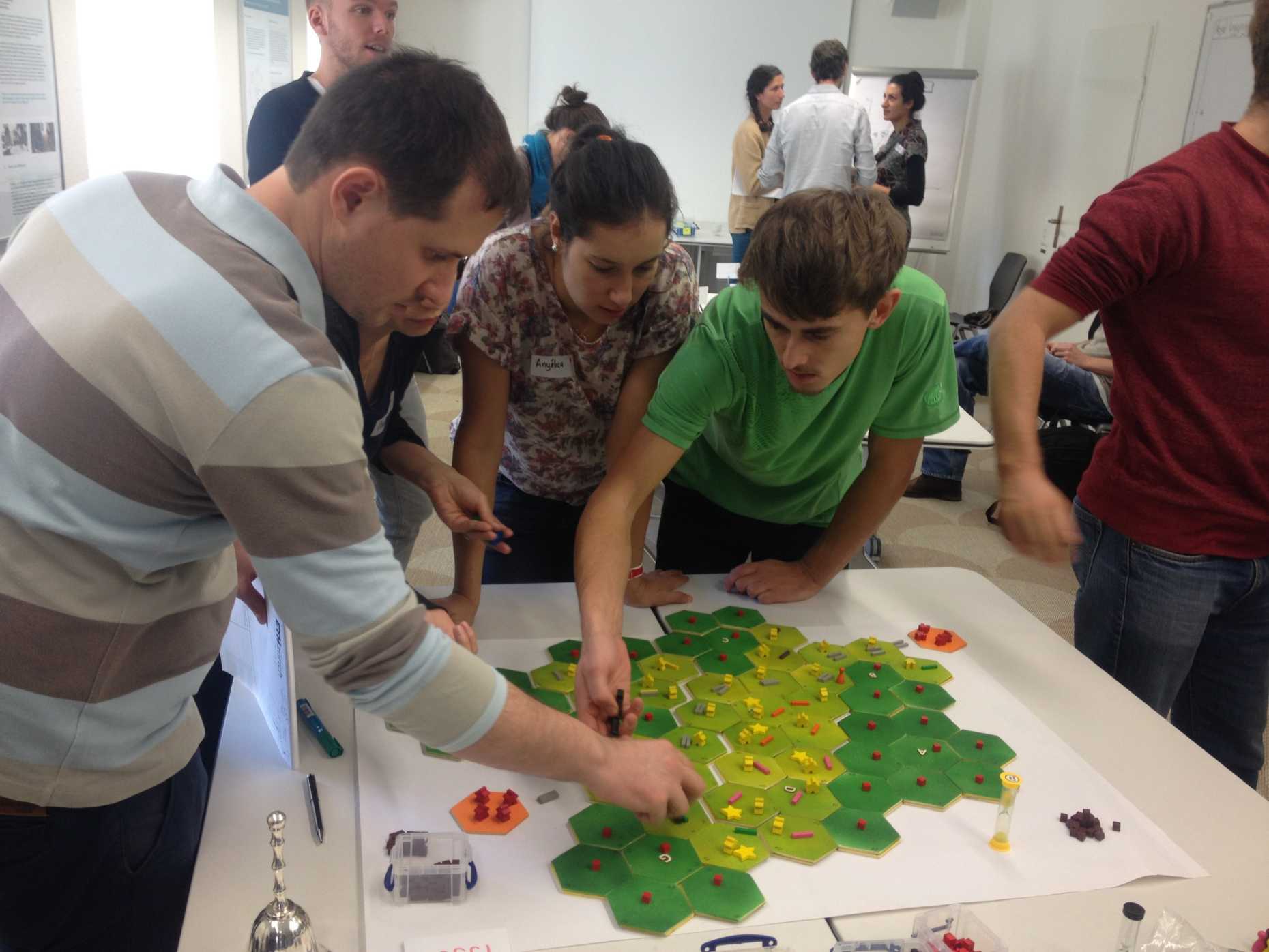Playing to discover mechanisms of negotiations?
By Céline Dillmann and Claude Garcia - An eye opener, but also a frustrating way of learning, and at the same time surprisingly helpful. This is how students from the Institute of Science, Technology and Policy describe their experience with the block course on negotiations we launched this year. For one full day, they slipped into the role of CEOs of logging companies to manage the forests of the Congo Basin.
Over the course of 60 years within the game, the students developed strategies and realized what it means to negotiate and what role information, timing, emotions, and trust play in this. In teams of two, they had to decide where to build roads, how much timber to extract and how to sell it to the world market. They had to distribute dividends to their shareholders. They had to manage their reputation to better negotiate with the bank for loans and expand their activities. They discussed with the government to comply with the laws, with the NGO to accommodate with the needs of conservation within their concessions and with other companies about buying or sharing land and building corridors. The pace was frantic, verging on chaotic at time. They had to negotiate under time pressure, contend with power imbalances and in conditions of high uncertainty. Far from the comfort zone.
The second day was devoted to reflecting on what had happened on the first day. Looking back at some of the key discussions the different groups had had, we analysed important elements of negotiation, and explored reasons for success and failure. We re-enacted negotiations, trying different approaches, analysing nonverbal communication and the arguments put forward by the different parties, and discussed how these insights are valid for real life negotiations.
After two intense days, students went home with a bountiful of lessons learnt. They realized that “negotiations can be shifted to a non-zero sum game” by “exploring all possible solutions”, “including different dimensions” and “being creative in finding new ways”. They learnt how important it is to “consider emotions” and “identifying the needs of the opponent” as well as to “question one’s understanding and perceptions”. They became aware of the difference between “conscious and unconscious choices” and that “what you want is different from what you need”. They experienced that effective negotiations require good preparation and time management.
According to the students, the game fostered “active discussions and team play” and created “interactive energy and focus within the group”. The students appreciated this unorthodox teaching approach and were surprised “how well the course on negotiation has been illustrated by using the game”, allowing to “understand the important points on negotiations”. They saw this as a practical approach to understand the more theoretical and abstract concept presented to them in other courses. There is room for improvement though, particularly on preparing better future participants to the levels of frustration and confusion that can be experienced in the first day. Their suggestions will help us to adapt the game and improve the course.
The students see potential for upscaling and use the game in other teaching and coaching contexts – acknowledging that the reflections helped them to take home lessons on decision-making and negotiations relevant beyond the realm of natural resources management. Above all, we challenged some of their assumptions, prompting them to question what they thought they knew. In other words, the course fostered critical thinking.
* texts in brackets are verbatims from the students’ feedback.

